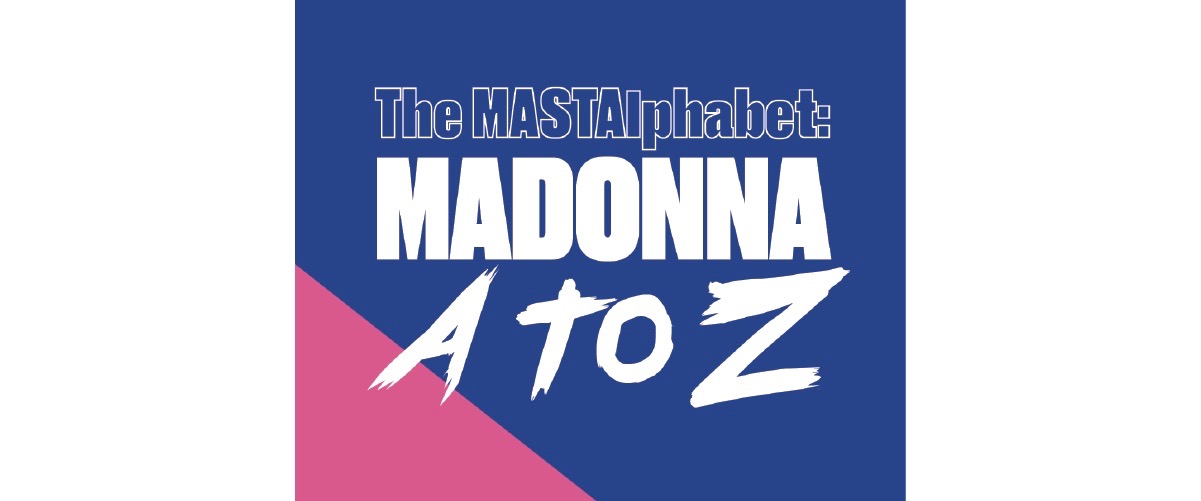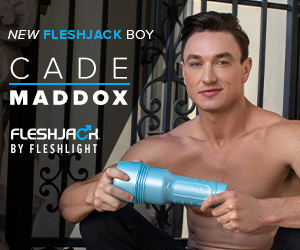Madonna has been a queer icon for almost 40 years, and chances are good that gay men will love her for years to come. But what is it about her that’s so tantalizing? And why do gay men respond to women like her in general? In this excerpt from new book Madonna: A to Z, critic Mark Blankenship digs into Madge’s place in the queer pantheon. For more on the book—which is available now and features 26 essays, lists, and nerdy asides about Madonna’s art and legacy—visit MarkAndSarahTalkAboutSongs.com.
Let’s take it as a given that gay men often lionize notable women (both real and fictional) because they magnify the concept of femininity. Whether they’re dying in an opera or reclaiming their time in a political hearing, they are doing things that get attention, and in one way or another, that attention gives them power. For gay men, who are so often told that our perceived femininity is a weakness, the presence of this power can be exhilarating. Here are women whose womanly traits cannot be ignored, and so here are women who give us girly boys a lesson in turning so-called faults into virtues.
Sometimes these women are tragic. For the opera queens among us, characters like Tosca and Butterfly are captivating because they externalize their romantic suffering to such a degree that it destroys them. But that’s better than burying your love inside the closet. It’s more honest, and it’s more forceful.
Similarly, Judy Garland, whose death is now mythically understood to have helped trigger the Stonewall Uprising, wore her faults on the outside, coming back from addiction and failed marriages and the nightmare of the studio system to keep singing her heart out. Jackie Kennedy wiped her husband’s blood off her Chanel suit and stayed poised for the cameras.
While the details may be less dramatic, many gay men have our own stories of resilience in the face of brutal hardships. So when we see a real-life woman like Judy or Jackie find a way to press on, something clicks. We too have been beaten down and discarded, told that we’re fragile, so we respond to a sister-in-arms who keeps marching.
Sometimes, though, our female icons appeal not because they suffer, but because they’re in charge. Think of Queen Elizabeth I, with her face painted white. Think of Eartha Kitt, laughing in the face of a male reporter who asks if she’d give up her career to please her husband. Think of Bette Davis playing all those hissing, evil, and/or indomitable broads. These women are revered by many types of people, of course, but they’re all part of the queer hall of heroines.
Women like Beyoncé, Alexandria Ocasio-Cortez, Lady Gaga, Cher, Dolly Parton, and Jane Fonda fit the bill even better, because they’ve explicitly supported queer people as part of their public personae. In some way, their strength is bolstered by their embrace of the queer community, and it’s easy to celebrate a woman who celebrates us.
Madonna is in the latter camp, and for gay men who came of age from the mid-’80s to the mid-’90s, she was often the most visible gay ally in popular culture. Sure, we had Liz Taylor raising money for AmFAR and Annie Lennox bending her gender every which way, but Madonna was doing it all. She was turning the cultural markers of femininity—the sexual desire for men, the perfection of aesthetic self-presentation, even the taste for disco beats—into a globe-conquering artistic mission. She was talking about AIDS and gay rights before almost anyone else, and she was traveling the world with the openly queer dancers on her Blond Ambition tour. Problematically or not, she was using “Vogue” to elevate the Harlem drag-ball culture to the global stage, letting young queens everywhere get perhaps their first taste of this undeniably queer strength. Over and over and over again, she seemed to be saying, “I am here, and you are here. We’re in this together.”
Of course, gay men are not monoliths. Some of us have never liked Madonna or Judy or Barbra. Many of us—including me, more than once—have argued that part of our liberation depends on rejecting the need for cis straight women to guide the way. We’ve argued that we ought to be looking to our fellow queers as our leaders. Those arguments are necessary, and if we ever accept anyone as a “queer icon” without interrogating why we’re doing it, then we’ve failed the rebellious spirit of queer culture.
Still, these women matter to gay history and to the gay present. Even now it’s hard to be anything other than a manly man, and even now it’s meaningful to see women who rise up anyway and get noticed. Queer culture can still benefit from being in conversation with every Jackie and Tosca and Beyoncé and Madonna who seems to be speaking our language.




